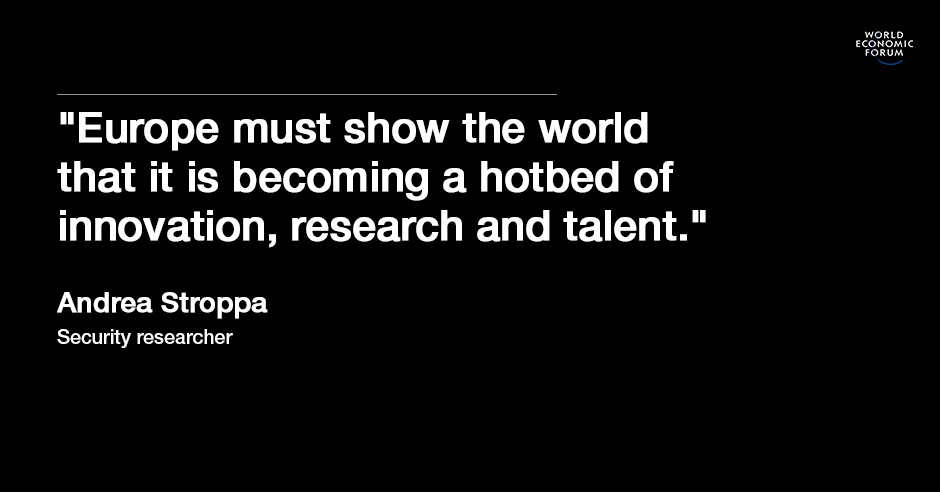Why European leaders need to think differently about innovation

Stay up to date:
The Digital Economy
Apple’s Chief Executive Officer Tim Cook will be at Bocconi University in Milan this week for the inauguration of the academic year. This is a great opportunity for both Italy and Europe to show the world that it is becoming a hotbed of innovation, research and talent.
Despite a change of leadership in the European Commission in recent years, the European Union has been unable to establish common policies about crucial issues such as research and development and innovation for a digital market. The bureaucratic machinery of EU institutions has prevented most initiatives, ideas and dreams from becoming reality.
For example, a few months back the European Court decided that ebooks cannot be classified as printed books, and therefore should not be considered exempt from VAT regulations for electronic devices. Also, many US tech giants are almost constantly under investigation and even the Safe Harbor Treaty was recently invalidated, preventing US companies from managing data on European consumers.
Do not get me wrong: EU authorities should and must be vigilant to protect EU economic interests and consumer rights. However, it is well known that protectionism and bureaucracy can easily stifle innovation, slow down investment, and scare off local entrepreneurs – not to mention have a chilling effect on the vital relations between the US and Europe. In late October, among many negative comments by top managers of US tech companies, Facebook’s David Marcus pointed out: “I wish Europe would welcome more innovation in technology rather than adopting a protectionist approach and creating complex regulations that change across borders.”
Europe is still emerging from a long economic crisis. But behind that there is an even deeper social and political crisis that is slowly but steadily driving some countries toward a populist and extremist position. This would be dangerous step for Europe’s stability and future – but is also sends a strong signal about the need to develop broader, common strategies.
The problem is that some of the region’s more powerful states are pushing their own agenda. Meanwhile, the smaller, often poorer nations seem destined to shoulder the burden of the wider problems affecting the bloc. In the past, countries such as the UK, Italy, France and Germany could address such issues by resorting to their most precious resource: human capital. And today a handful of large public entities – including Geneva’s CERN, the European Space Agency, Germany’s Startseite Fraunhofer-Gesellschaft, France’s Centre National de la Recherche Scientifique, and Italy’s Consiglio Nazionale Ricerche – still manage to deploy plenty of resources, experts and skills to advance innovation throughout Europe. But a wider network of smaller research centres and organizations still lack the funding, incentives and institutional support to move forward. As a result, in countries like Italy, most researchers and entrepreneurs lag behind their peers.
In addressing these issues facing the digital marketplace, one of the top 10 priorities of President of the EU Commission Jean-Claude Juncker, we need to establish clear and fair rules for all. These include support for the music download business and for small- and medium-size companies, establishing a single area for online payments and further protections for EU consumers. Unfortunately, the whole project currently appears foggy, with thousands of people (including investors, entrepreneurs and citizens) still forced to live in a fragmented and uneven continent. In fact, the EU seems unable to find common ground on simple decisions that can actually unify (and benefit) every country in the bloc (such as the ebooks/VAT controversy mentioned above).
In this context, Tim Cook’s visit to Milan is more than welcome. His passion, creativity and courage are a great opportunity to revive and advance those same values that, even if under different circumstances, drove the EU’s founding fathers to draft the Ventotene Manifesto in 1941. Given the landscape described above, it is up to us as citizens – particularly the younger generations – to embrace such values and fight for a different Europe, moving away from protectionism and overly strict regulation.
“Think different” is not just an appropriate tagline for one of the world’s most innovative tech companies – it is the only way to realise a long-standing dream for Europe.
Author: Andrea Stroppa writes about security and technology for the World Economic Forum.
Image: A 3D table lamp, the Bloom lamp by Patrick Jouin in collaboration with .MGX by Materialise, is seen at the Belgian company Materialise, the biggest 3D printer in Europe, in Leuven January 24, 2013. REUTERS/Yves Herman
Don't miss any update on this topic
Create a free account and access your personalized content collection with our latest publications and analyses.
License and Republishing
World Economic Forum articles may be republished in accordance with the Creative Commons Attribution-NonCommercial-NoDerivatives 4.0 International Public License, and in accordance with our Terms of Use.
The views expressed in this article are those of the author alone and not the World Economic Forum.
Related topics:
Forum Stories newsletter
Bringing you weekly curated insights and analysis on the global issues that matter.
More on Geographies in DepthSee all
Aimée Dushime
April 18, 2025
Samir Saran and Anirban Sarma
April 17, 2025
Nada AlSaeed
April 16, 2025
Zhang Xun and Vee Li
April 8, 2025
Abdulwahed AlJanahi
March 3, 2025
Naoko Tochibayashi and Mizuho Ota
February 28, 2025






